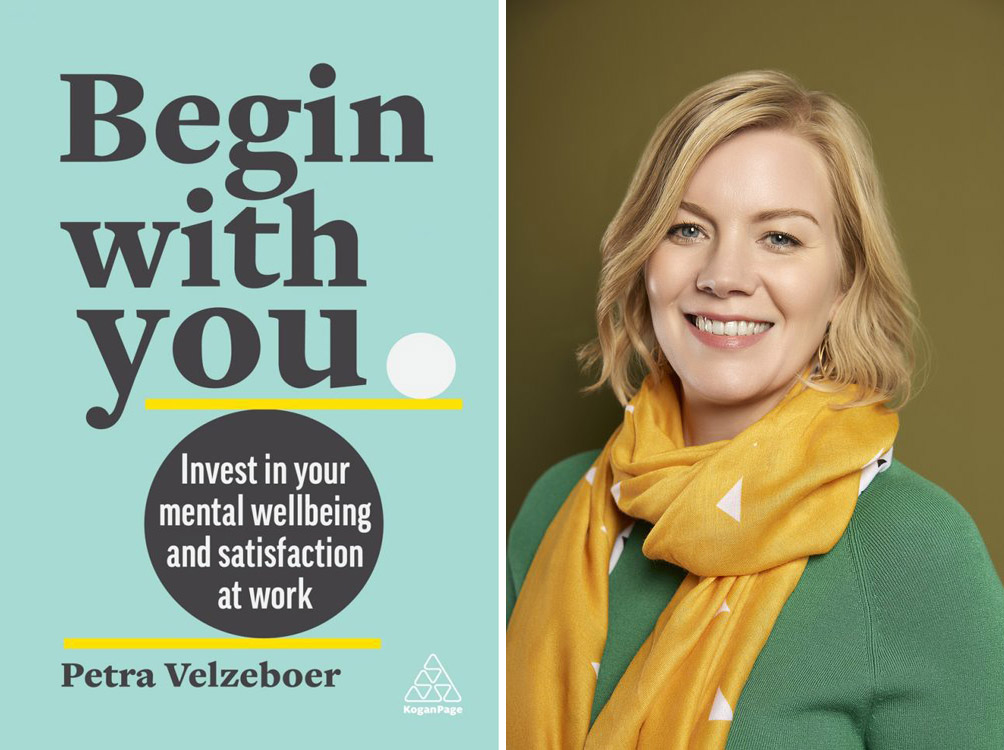
In this fast-paced and often stressful world, making self-care and wellbeing a habit is often easier said than done. In this guest editorial, author, psychotherapist, and TEDX speaker, Petra Velzeboer explains how to do it by creating a life we love, which will help protect against depression, burnout, and anxiety.
James Clear, in his book Atomic Habits (2016), advises that, contrary to popular thinking, motivation isn’t the key to creating new habits. He says, “The truth is, our real motivation (as humans) is to be lazy and do what’s convenient. And despite what the latest productivity best seller will tell you, this is a smart strategy, not a dumb one.”
So, then, how do we focus on creating useful habits when it comes to our wellbeing? Let’s face it—we often know what we need to do and what will help us feel healthy in body, mind, and soul—but, once again, the urge to ‘just relax’, ‘you deserve it’, or ‘maybe start tomorrow’ allows us to believe that self-care is about doing nothing, not trying hard, and giving ourselves space to breathe.

A little bit of time to do nothing is, of course, healthy, but self-care is not just about bubble baths and candles; it’s so much more than that. It’s about being radically honest with ourselves and learning to listen to our body; it’s about having difficult conversations, having a voice and investing in learning and challenging ourselves with new experiences.
These are the things that long-term enable us to create a life we love, bulletproof from burnout, depression and anxiety.
So here’s how to get started:
1. Create Some Space for Reflection.
In a world of information overload, we often feel like we need to do so many things to achieve wellbeing. We follow trends and expectations and can often feel the pressure to do self-care like other people, forgetting that our bodies are unique and will give us information that might be different at different times of our lives.
Ask yourself some questions and expect honest answers. How do I really feel? What is my body telling me? Who do I want to be? What is in my control? Is my voice being heard? Am I living the fullest version of my life and reaching my personal potential?
With this level of honesty, you can begin to map out the habits that you’re more likely to stick to—because they mean something and matter to you personally.
2. Find Accountability
When we keep everything to ourselves, we often override our best commitments with valid arguments that prevent us from sticking to them!
We fool ourselves into thinking today is not a good day. I’m tired and stressed, have no time, and will start tomorrow. Well, if we look at the great athletes, artists, and thinkers throughout history, they did not rely on feelings to decide in the moment how they would show up; they relied instead on commitments to themselves and others.
Habits are created through consistently doing something, not through thinking about it or deciding in the moment – there’s no negotiation; it’s just what you do. Accountability with someone else can be a great way to get started.

Find a friend, colleague, or professional with whom you can be direct. Tell them the habit you want to stick to, and crucially, tell them how you will try to convince yourself not to do it in the moment. Give them full permission to call you out on your bullsh*t, and perhaps, with a friend, you can do the same for them.
3. Progress, Not Perfection
James Clear says ‘make it easy’ as one of the ways to help set up a new habit – this means things like having your workout clothes ready for the next morning, blocking out space in your diary, communicating intentions and boundaries with your family or team – ask yourself, what are the conditions that would make me more likely to stick with this habit.

Your environment, your plans, how you communicate and who you have around you are all conditions that could make sticking to the habit easier. When we miss a goal, we often have a harsh, critical voice inside our head that tells us there’s no point, so why even try – we all battle with a version of this voice; it’s ok, and sometimes you’ll listen to it and stuff your face and watch Netflix – hey, maybe this is part of self-care too, why not – just not all the time.
It’s about saying thank you to your voice for trying to keep me in a lazy and convenient place. However, I’m going to stand right back up and decide who I want to be.
So, if you’ve created space to reflect, found an accountability buddy, and checked your mindset for self-care, which is a journey, not a destination, you’re off to a great start for effective habit change.
Remember, you are the boss of your own life. No one is coming to save you, so it’s up to you to decide who you want to be and what you’re willing to invest in to develop the muscle of self-care. This approach enables you to boost your long-term wellbeing.
This guest editorial was written by Petra Velzeboer, a psychotherapist, executive coach and author of Begin With You: Invest in Your Wellbeing & satisfaction at Work.

![]()




You must be logged in to post a comment.